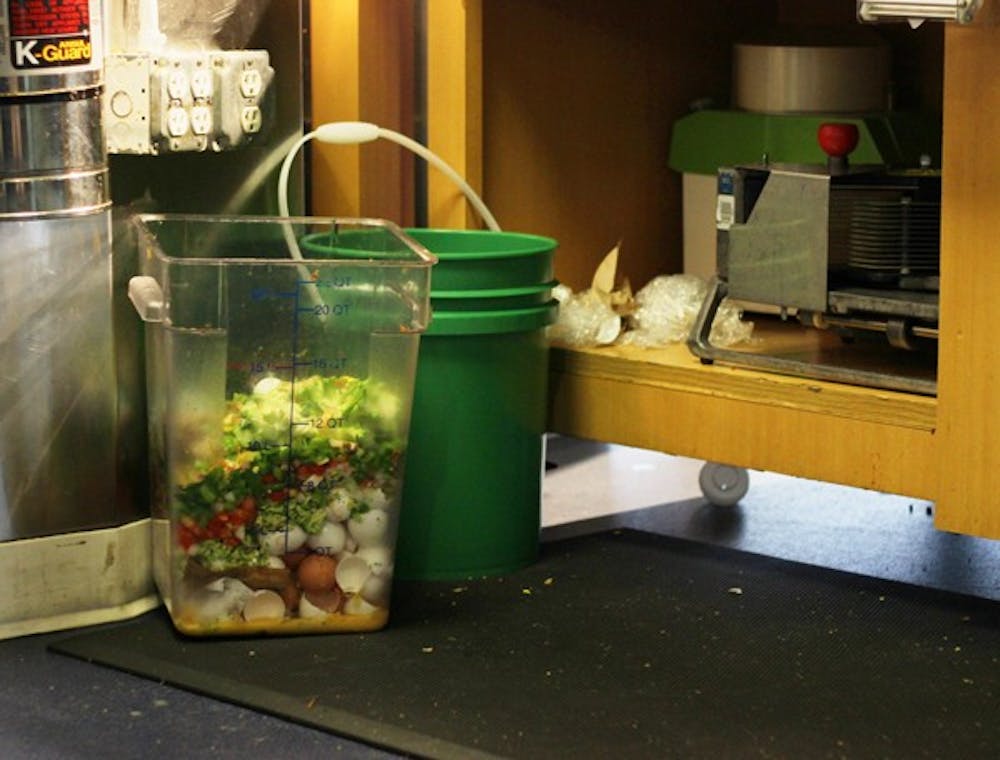Campus dining increases waste prevention efforts, composted 72 tons of food
Campus Dining has made efforts to eliminate waste by composting, totaling 72.5 tons of composted food items last year.
Nikki Smith, director of campus dining marketing, said the commitment to reduce waste will have a positive impact on the environment.
“With these efforts, we can help lessen our impact on the environment, support food safety, quality and consistency and reduce food costs for Central Michigan University," she said.
Smith said switching to different margarine pats and eliminating straws has helped reduce the number of items that cannot be composted. The napkin dispensers in the residential restaurants have also been designed to help eliminate waste.
“We use the Xpressnap system on campus for napkins, which features a one-at-at-time dispenser," Smith said. "It's had the ability to dramatically cut paper waste by preventing people from accidentally taking more napkins than they intended to."
Students said eliminating unnecessary waste is a step in the right direction.
“Eliminating straws was a good idea, because using them causes an undue waste and creates and undue expenses," Franklin sophomore Meghan Marx said.
In addition to making efforts to eliminated non-compostable waste, Campus Dining has also made efforts to reduce food waste.
“Production sheets are kept for each meal to show how much food was forecasted, how much was prepared, how much was served and how much was wasted,” Smith said.
The next time the meal is prepared, the sheets are reviewed and efforts are made to only prepare as much food as is needed.
Gary Darnell, a baker in Robinson Residential Restaurant, said campus dining uses batch cooking by cooking less than what a recipe might call for and then cooking more if needed.
In addition to composting, Smith said some extra food is donated to the Isabella Community Soup Kitchen, but due to strict regulations, only certain foods can be donated.




